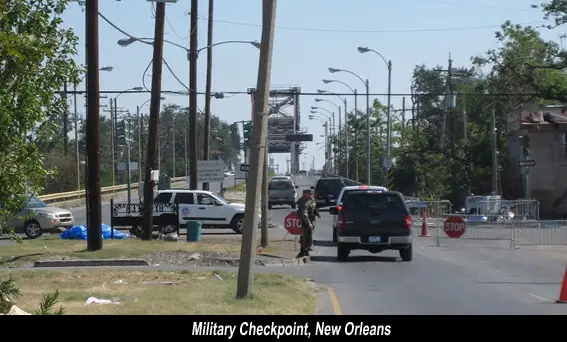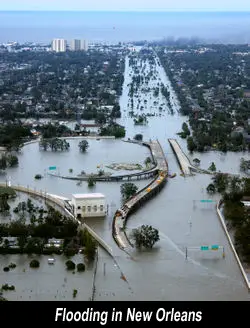Climate Change Society: What affect will climate change have on our society as we know it? This question poses considerable analytical problems for governments around the world. We all watched the events of Hurricane Katrina unfold on our TV screens as the storm developed over the Gulf of Mexico. We saw how this storm intensified and struck the coast of the USA with the ferocity unparalleled in recorded memory. These events unfolded before our eyes and we were shocked at the aftermath, where we saw civil society breakdown into what some called total anarchy. Now imagine the same event only 10 times worse, that is what the world could be facing if the trends in climate change continue.

We are increasingly a coastal species, 44% of the world’s population (6.75 billion) or 2.9 billion people live within 150 km (ca.100 miles) of the coast. This is more people than inhabited the entire planet in 1950. In 1995 alone, an estimated 50 million people migrated to the coastal zones of the United States.
Mass migration to the coasts will continue in the decades ahead. Most of this population growth is concentrated in large coastal cities. As coastal population grows, along with the activities that accompany this growth, the coastlines are radically altered. Clearing, land reclamation, and channelling for flood and tidal waters destroy coastal wetlands. Port development, road building, coastal construction, tourist resorts and the mining of beach sand for construction material obliterate shorelines. These activities often increase coastal erosion and damage habitats, for example, seagrass beds are destroyed by boat propellers and coral reefs poisoned, often away from the development site.

Much of our scientific research has focussed on trying to understand the way that Climate Change and Global Warming affects the planet. Recently, we are also turning our attention to the human cost that these changes are having on our society. One area of research that has attracted considerable attention has been what effect weather has on crime and social disorder. We are also beginning to understand the connection between biodiversity and human well-being, particularly as ecosystems change as a result of human activities.
If the predictions of Global Warming and Climate Change are correct then society should be urgently working towards developing adaptation and mitigation strategies to combat these dramatic changes. Hurricane Katrina provides us with a window into the aftermath of extreme weather events and allows us to look other social problems such as crime, health, and mental health enabling us address these issues.
Finally, when considering ‘climate change society’, what do we think about the moral responsibility of various nations towards climate change, and does this vary between countries? Global warming and extreme weather conditions may have calamitous consequences for the human rights of millions of people. Will climate change impact differently on men and women?
The UN secretary-general Ban Ki-moon and many others are convinced we are confronting a climate emergency to which we must respond. However, the response by leaders of their respective countries at the Bali and Copenhagen Conferences does not bode well for global cooperation.
